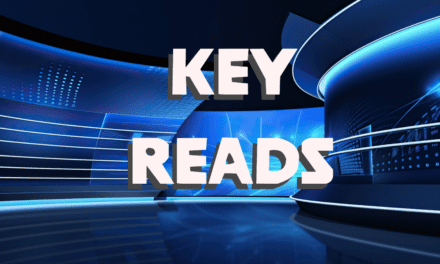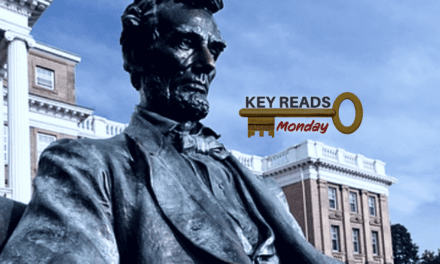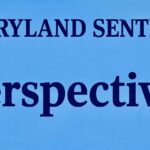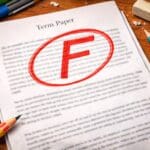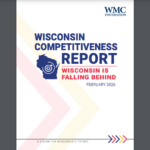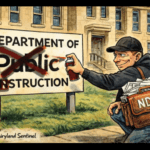It’s been a week full of speeches and political posturing. While those of us in the real world just went to school and work and engaged with our communities. While the hyper political scream at each other within their bubble, we’re busy living life and dreading the thought of losing an hour this weekend.
Consider this our reminder that Daylight Saving Time begins on Sunday morning.
With that public service announcement out of the way, let’s get to the final edition of Key Reads for the week.
On our main site yesterday, we posted a summary of tweets by a Wisconsin redistricting professional that exposed the hypocrisy and shady work of the so-called experts who pulled down $128,000 in taxpayer money for their State Supreme Court Dog and Pony Show. As we do with all the news we share with you, we encourage you to click on the headline for the full story. But here’s an excerpt:
Redistricting ‘experts’ hired by liberal State Supreme Court majority relied on bad data for their analysis and recommendations | Dairyland Sentinel
Joe Handrick, former Republican lawmaker and an actual expert regarding Wisconsin redistricting, lays out the facts regarding Grofman and Cervas’ bungling of the analysis in a series of posts on the social media platform X this morning. Handrick is professional and dispassionate in his factual analysis of their work. But Grofan and Cervas’ errors are undeniable.
2 of 6
— joe handrick (@joeminocqua) March 7, 2024
The Evers brief said, “the repeated failure of Respondents’ plans to conform to the ‘bounded by’ constitutional requirement is disqualifying.”
Because new maps have been enacted, this contradiction by Evers received little attention and it’s now just a part of history.4 of 6
— joe handrick (@joeminocqua) March 7, 2024
Thus, the out-of-state consultants reported on ward splits, but based that report on old wards!
The consultants said in their “non-partisan” report: “The Johnson plan appears to have a substantial number of fails of the ‘bounded by’ constitutional criteria.”6 of 6
— joe handrick (@joeminocqua) March 7, 2024
To be clear, the DEMs were wrong in their assertion that a plan with split wards was unconstitutional.
But they were all too willing to jump on that bandwagon when the consultants mistakenly asserted that only GOP maps should be discarded because they split wards.So to summarize, the partisan “experts” hired by the liberal State Supreme Court majority not only subjectively judged the ‘fairness’ of the map, they not only made up ‘good government’ criteria by which the maps were judged, they also used bad data.
Charitably, these experts were let’s just say, less than brilliant here in their effort to discredit the WILL maps.
Legally, all court cases against the 2022 maps are moot, since the legislature passed new maps last month. As we shared here in earlier Key Read summaries, Republicans chose the least onerous of what they perceived to be four bad options, and passed maps proposed by Governor Evers.
However, we also highlighted that these so-called experts billed the state of Wisconsin $128,000 for their analysis.
As this news is just breaking, there is no word if there will be fall out from the revelation that the ‘experts’ screwed up. We would not be surprised, however, if someone suggests they shouldn’t get paid so handsomely for such shoddy work.
Moreover, chew on this for a minute. If the Wisconsin Supreme Court really cared about split municipalities as a concern on whether the maps were legitimate, the current maps signed by Governor Evers most assuredly are not.
That received a lot of pushback on those heavily-invested in the redistricting hypocrisy. But Handrick knows the process and the state better than the so-called experts hired to do the liberal Court majority’s bidding.
Here’s another case of the government not keeping up with reality. It has to do with the silly emission testing program for automobiles. Even as technology has made the program frivolous, the state contractor felt the need to open up and operate stand-alone testing centers because they’ve failed to keep the private sector engaged. The reimbursement rate for conducting the tests hasn’t changed in more than a decade. They should scrap the testing program all together and focus on gross emitters, which are usually cars that are significantly older than average.
Emissions test sites growing frustrated with state payments | WISN
The state pays contractor Opus Inspections $3.5 million a year to run the emissions testing program. Right now, there are only 172 locations [In private repair shops], below the stated program goal of 200.
But two standalone facilities in Milwaukee and Oak Creek just opened in the last few weeks. Banaszynksi said it shows Opus can’t find enough repair shops to do the inspections, now having the expense of operating the facilities themselves.
“If they would’ve given guys a little bit more money, a whole bunch more would’ve stayed in the program, and they wouldn’t have those costs,” Banaszynski said.
Instead, he said, it can be tough to find a location for the test unless you live near one of Opus’ their two facilities.
“Guys with the boots on the ground that are doing the majority of the work, they kind of forgot about us, and they think our time isn’t worth anything,” he said.
In yesterday’s Key Reads we highlighted a case where an appeals court ruled that legislature’s laws must lead to specific government department rules that guide the enforcement of Wisconsin environmental law. We lauded it as a victory for those who believe that unelected bureaucrats are not empowered to vaguely dictate their will onto Wisconsin citizens.
As expected, the state attorney general is appealing that decision. Instead of pursuing a compromise between the legislature and the governor, environmental activists like their odds before the new state supreme court. Given the Court’s reliance on dubious ‘experts,’ we get it.
Enforcement must meet created standards in chemical battle | The Center Square
Wisconsin’s attorney general is promising to appeal a decision from the state’s appellate court that sidelines Gov. Tony Evers’ efforts to go after chemical polluters.
The three judge panel on Wednesday ruled that the Department of Natural Resources cannot use the state’s Spills Law to order the clean-up of PFAS pollution. Justices said that law doesn’t specify just which PFAS chemicals are considered dangerous or harmful.
PFAS, an acronym for per- and polyfluoroalkyl substances, are widely used, long lasting chemicals, components of which break down very slowly over time. Studies vary on their harmful effects; more is known about their impact on animals than on humans. PFAS, the Environmental Protection Agency says, “are found in water, air, fish, and soil at locations across the nation” and throughout the world…
The decision stems from a 2022 ruling in Waukesha County that said Wisconsin lawmakers have not set PFAS standards, nor have they spelled-out just which chemicals are banned or dangerous.
Wisconsin Manufacturers and Commerce, the state’s largest business group, on Wednesday said the appellate court ruling is a win for the people of Wisconsin, and a loss for the overzealous regulatory power of state government.
How did your favorite local cheesemaker fare in the big contest? Heads up, if you don’t have a favorite local cheesemaker, we think this means you have to pay non resident hunting and camping fees here …
World Championship Cheese Contest wraps up | WEAU
The 35th World Championship Cheese Contest wrapped up Thursday afternoon with more than 3,300 entries across 142 classes.
The Wisconsin Cheese Makers Association (WCMA) hosted the event and announced the World Champion Cheese winner at about 2 p.m. Thursday at the Monona Terrace.
This year’s winner was Mountain Dairy Fritzenhaus from Switzerland. First and second runners up were Dutch Cheese Makers from the Netherlands and The Farm at Doe Run in Pennsylvania.
Impressive list of contestants and varieties. The kids are still getting slices of American in tonight’s grilled cheese sandwiches…
Have a great Wisconsin Weekend, and we’ll be back again with Key Reads on Monday.


